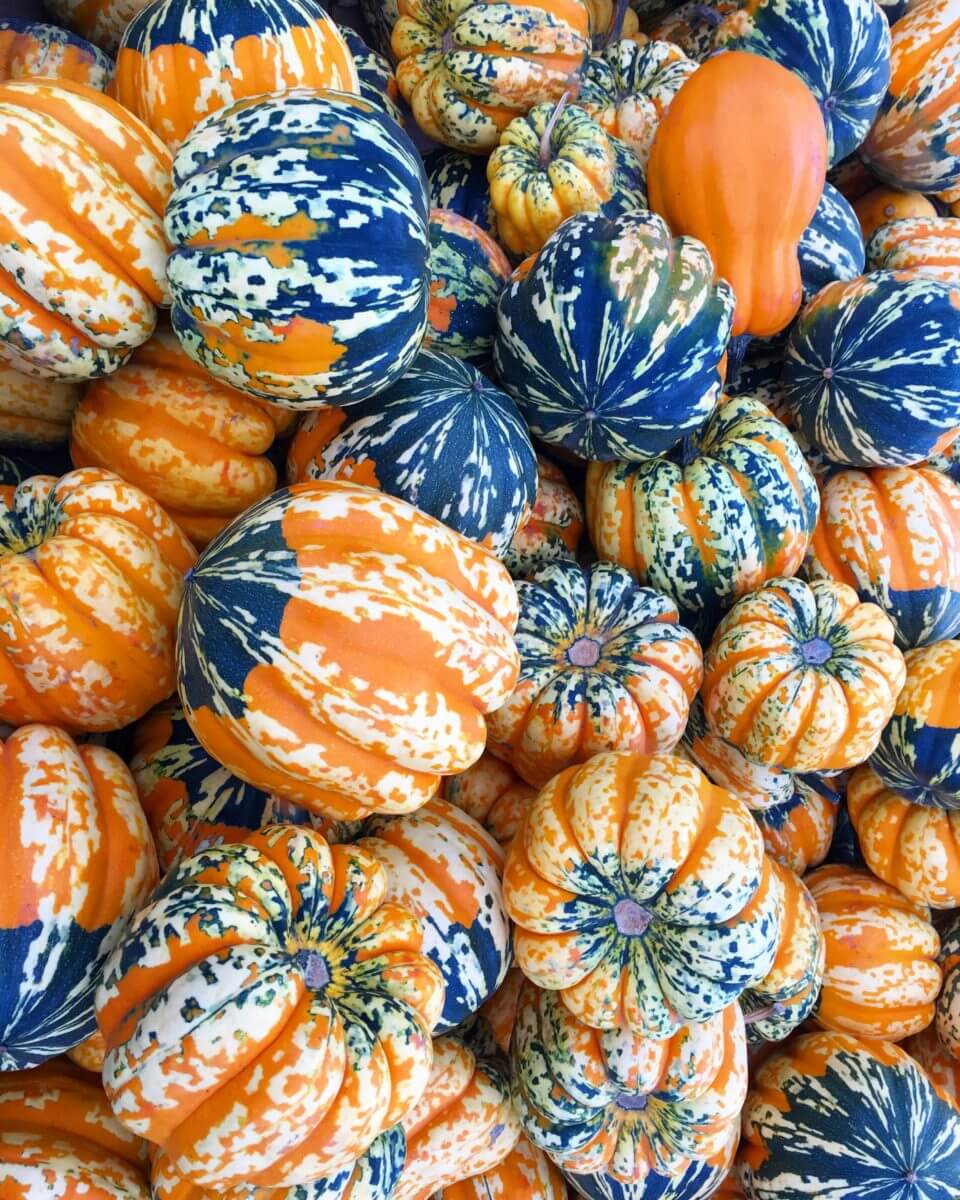
Fall brings many seasonal fruits and vegetables to your plate, such as these three favorite fall fruits and fall vegetables: squash, pumpkin, and pears. Learn about the benefits and cooking tips for fall fruits and fall vegetables in this guide.
Fall is in the air, which means it’s time for some of my favorite fruits and vegetables to shine. So much amazing produce is in its prime during the autumn months. Summer berries take a back seat to beautiful apples and pears in red and golden shades, reflective of the changing leaves. Squashes galore in every shape, size and color you can imagine make the perfect staple for fall-flavored soups, salads, and warming main dishes.
Not only is eating these magnificent plants good for your taste buds, it’s also wonderful for your health. Colorful fruits and vegetables are packed full of vitamins and minerals, not to mention fiber to keep you feeling satisfied. Eating seasonal produce—instead of out of season fruits and vegetables shipped in from miles away—is a much more environmentally friendly way to eat. By cutting down on the transit time, not only are you getting the freshest available food, you’re also decreasing fuel emissions and supporting small farms in your region. Here are three of my absolute favorite fall fruits and fall vegetables to try right now, along with tips on how you can enjoy them.
Winter Squash
Health Benefits: These plants in the gourd family are packed with nutrients, namely carotenoids—antioxidants with powerful health benefits, such as helping to protect eye health and prevent cardiovascular disease.
Preparation and Cooking Tips: The best way to prepare squash is roasted or baked. Just slice one open, scoop out the seeds, place the halves (skin side down) in a baking dish filled with one-half inch of water, season as desired, pop the dish in the oven, and bake for about an hour until the squash is tender and golden brown. Try this simple recipe for Roasted Butternut Squash with Dates, Figs, and Pistachios for a good introduction into roasted winter squash.
Recipe Suggestions: Fill the center of squash with a healthy plant-based stuffing, including grains and legumes. Toss cooked squash into vegetable or grain salads. Roast in sheet pan meals with other fall veggies, such as brussels sprouts or root vegetables.
Try some other plant-based recipes featuring winter squash here:
Pumpkins
Health Benefits: They are packed with nutrients, such as B vitamins, vitamins A and C, fiber, copper, potassium, and slow-digesting carbs, making the good for your eyes and heart.
Preparation and Cooking: Pumpkins are not just for jack-o-lanterns! Just as you would for winter squash, you can slice one open, scoop out the seeds, place the halves in a baking dish filled with one-half inch of water. Season as desired, either with a savory blend of spices like cumin, coriander, and chili, or a sweet mix of cinnamon and nutmeg. Pop the dish in the oven and bake for about an hour until the pumpkin is tender and golden brown. You can also bake pumpkin into muffins, stir it into soups, chili, or curry dishes, blend it into a smoothie, or sauté it in a stir-fry.
Recipe Suggestions: Use pumpkin in baking muffins, cakes, breads, and cookies. Add to coffee drinks, oats, and smoothies. Add to soups, stir-fries, and stews in place of other squash.
Try a few other recipes featuring pumpkin here:
Pears
Health Benefits: These fruits are packed with nutrition—all in a skinny 100-calorie serving, providing a super dose of fiber (6 grams!), as well as vitamin C and health-protective phytochemicals linked with the color of their skin.
Preparation and Cooking: Wash thoroughly before eating. Cut them into slices and eat raw, or add them to fresh dishes, such as salads and smoothies, or cooked dishes, such as oatmeal, pies, muffins, pancakes, and side dishes.
Recipe Suggestions: Slice them into granola recipes, green or grain salads, and baked desserts. Try them in sweet or savory cooking; they are such a versatile fruit!
Try these other plant-based recipes for pears:
For other fall cooking ideas, check out the following:
Top 5 Ways to Use Pumpkin Seeds
50 BEST Plant-Based Fall Squash Recipes
10 Plant-Based Fall Recipes
